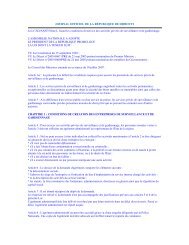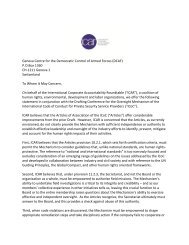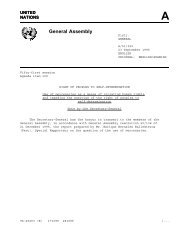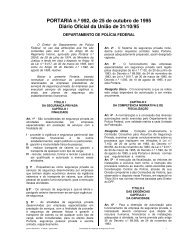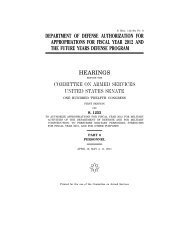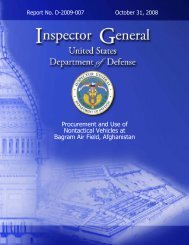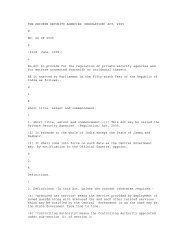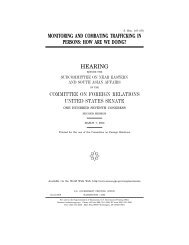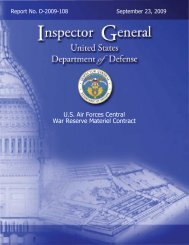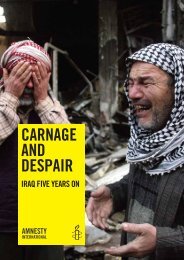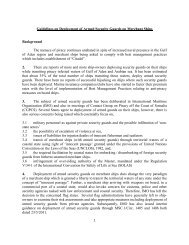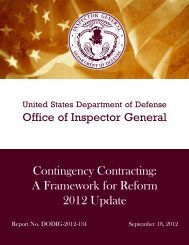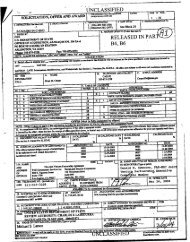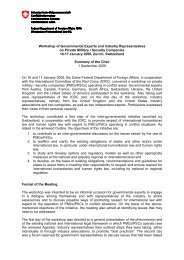Security Assistance; and Logistics - Federation of American Scientists
Security Assistance; and Logistics - Federation of American Scientists
Security Assistance; and Logistics - Federation of American Scientists
You also want an ePaper? Increase the reach of your titles
YUMPU automatically turns print PDFs into web optimized ePapers that Google loves.
Part IV – <strong>Logistics</strong> SustainabilityIntroductionThe effort to help Iraq <strong>Security</strong> Forces (ISF) develop their logistics sustainmentcapability has faced numerous <strong>and</strong> formidable obstacles. Among these have been:• Lack <strong>of</strong> formal codification <strong>of</strong> Iraqi logistics processes resulting in inconsistentunderst<strong>and</strong>ing <strong>and</strong> enforcement <strong>of</strong> the processes throughout the ISF• A non-responsive equipment <strong>and</strong> parts distribution system that limits growth <strong>of</strong>other logistics capacities• Lack <strong>of</strong> consistent reconciliation practices leading to distribution weaknesses• Comm<strong>and</strong>ers’ routine use <strong>of</strong> ad hoc procedures to expedite resupply• Undeveloped <strong>and</strong> immature reporting processes• Corruption concerns that force centralized control from the top• High illiteracy rate that hinders development <strong>of</strong> logistics capabilities• Dependence on a paper-driven supply systemWhile it has made some notable progress, the Coalition effort to develop the logisticscapability <strong>of</strong> the ISF has progressed slowly. Previously, the focus <strong>of</strong> ISF capabilitydevelopment by the Coalition had been on generating the force – establishing the army<strong>and</strong> police forces – <strong>and</strong> the associated training capability needed to maintain those forces.The generation <strong>of</strong> logistics personnel <strong>and</strong> logistics capabilities had significantly laggedthat <strong>of</strong> building the base <strong>of</strong> the army <strong>and</strong> police forces. In the recent past, when trainedlogistics personnel did report to combat units, they were <strong>of</strong>ten reassigned to infantryduties because manning the combat units was the priority emphasis. Given the U.S.willingness to provide key default logistics services when the ISF was incapable <strong>of</strong> doingso, dependence on the Coalition became a common approach to logistics support for theISF.In some areas, the ISF has gradually become more competent <strong>and</strong> self-sufficient.Requirements for Coalition logistics assistance during recent Iraqi-led operationsindicated progress in mobilizing <strong>and</strong> delivering logistics support at a distance, but alsohighlighted ISF limitations in planning <strong>and</strong> conducting sustained expeditionary lifesupport. Most significantly, however, there appears to have been a fundamental changein attitude toward the development <strong>of</strong> logistics sustainment capability for the ISF – bothby the ISF <strong>and</strong> the Coalition.69



